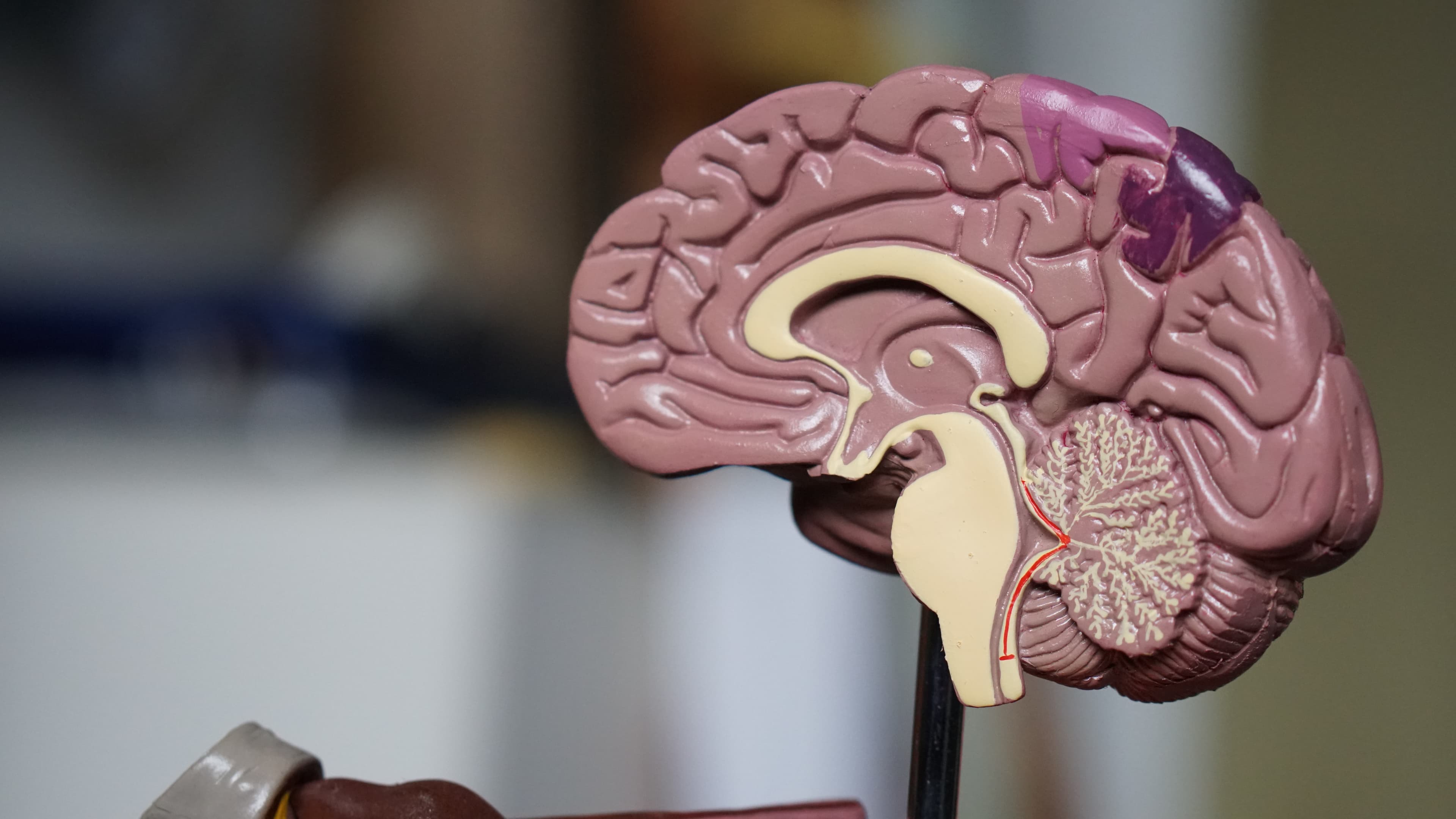How Alcohol Affects Your Brain

In This Article
When you drink, alcohol enters your bloodstream and travels throughout your body, where it impacts virtually all of your organs and systems. Some of alcohol’s most significant effects occur in the brain.
What Happens in Your Brain When You Drink Alcohol
Alcohol enters your bloodstream through the stomach lining and through the wall of the small intestine. Once in the blood, alcohol is quickly transported around your body, including to the brain (1).
Alcohol passes from the blood into brain tissue, where it acts on neurons. It activates neural receptors that release chemicals that cause the pleasurable feelings associated with drinking (2).
Alcohol also inhibits the ability of neurons to send information necessary for normal brain function (3).
You may have heard that alcohol is a depressant. That is because it slows central nervous system functioning. This is why drinking causes slurred speech, slowed reaction time, blurred vision, poor concentration, and impaired motor control (2, 4).
How Different Amounts of Alcohol Affect the Brain
How much your brain is affected by alcohol depends on how much alcohol you drink and how high your blood alcohol concentration (BAC) rises.
The exact amount of alcohol needed to produce the effects of alcohol is different for each person, making it potentially complex to know when your drinking might be a problem.
Many factors play a role, including your sex, age, and weight; the type of alcoholic drinks consumed; how quickly they’re consumed; and whether or not you’re drinking on an empty stomach.
Here is a rough guide to what you might experience as you drink (5):
| Number of Standard Drinks* | Blood Alcohol Concentration (BAC) | Symptoms Caused by Alcohol’s Effects on the Brain |
|---|---|---|
| 1 to 2 | 0.01% to 0.05% | Relaxation; becoming more talkative; reflexes and reaction time begin to slow |
| 2 to 3 | 0.05% to 0.07% | Increased loss of inhibitions; mild feeling of euphoria; vision may begin to blur; fuzzy memory; further reduction in coordination |
| 4 to 5 | 0.08% to 0.12% | Slurred speech; poor balance; hearing may worsen; risk assessment impaired, which could lead to risky behavior like drunk driving, etc. (Note: In every U.S. state,except Utah, it’s illegal to drive with a BAC of 0.08% or higher. In Utah, the legal BAC limit is 0.05%.) |
| 5 to 7 | 0.15% to 0.2% | Appearing “sloppy drunk”; staggering; dazed; depressed mood and sad feelings may arise; double vision; dulled sense of pain; dizziness and vomiting may begin |
| More than 7 | 0.2% to 0.29% | Need help standing and walking; disorientation; blackouts |
| 0.3% to 0.4% and higher | Possible loss of consciousness; potential to fall into a coma; possible alcohol poisoning and death |
*Women tend to reach a higher BAC with fewer drinks than men.
Long-Term Effects of Alcohol on the Brain
For most people who drink occasionally or in moderation, their brains experience initial impairments in reaction time and judgment (which is why drinking and driving is such a bad idea). But with occasional drinking, brains return to normal functioning once the body metabolizes the alcohol consumed and the drinker is once again sober.
Chronic heavy drinking, however, raises your risk of developing long-term brain-related problems. These can include:
Alcohol Use Disorder (AUD)
Alcohol Use Disorder or AUD is a brain disorder in which people are unable to stop or control drinking despite it causing harm to their lives. AUD is treatable with medication and other forms of support.
Shrinkage of the brain
The brain may decrease in size with regular heavy drinking. Areas of the brain that could be affected include the cerebral cortex and the hippocampus. Shrinkage in these areas can lead to difficulties learning new things and memory lapses (2, 5).
Dementia
Numerous studies have found links between heavy drinking over a long period and an increased risk of developing dementia (6).
Wernicke-Korsakoff syndrome
Wernicke-Korsakoff syndrome is actually two brain conditions, but they frequently occur together because they’re caused by a deficiency of vitamin B1 (also called thiamine).
Chronic heavy drinking frequently leads to vitamin B1 deficiency. Over time, this deficiency leads to brain damage (7).
Wernicke’s encephalopathy is a syndrome that causes poor memory, vision problems, confusion, and impaired coordination.
Korsakoff's syndrome typically develops after Wernicke’s encephalopathy. It leads to memory loss and an inability to form new memories, apathy, disorientation, and hallucinations.
Depression and anxiety
Long-term heavy alcohol use is linked to the development of depression and anxiety (1).
About The Author
Ian Landau is a journalist who's written extensively about health and wellness since 2010. He is also the author of The Hypochondriac's Handbook (Skyhorse, 2010).
Related Articles
- How It Works
- Alcohol & Health
- Alcohol Misuse & Alcohol Use Disorder
- Strategies to Drink Less or Quit
- Treatment Options
- Medication-Assisted Treatment
- Recovery Stories
- Member Stories
- Moderation Stories
- Sobriety Stories
- ¹ Oar Health membership plans include access to the Oar Health platform, virtual consultations with a healthcare professional, and medication if prescribed by a healthcare provider. 3 month membership plan costs $297, equating to $99/mo.
- ² Self-reported by members after 6 months of Oar Health membership.
- ³ Verywell Health survey of Oar Health members, published March, 2023.
- ⁴ Prescription medication is available only if prescribed by a licensed clinician.
- ⁵ Compounded medications are prepared based on a prescription from a healthcare provider. They are not reviewed by the FDA for safety or efficacy.






